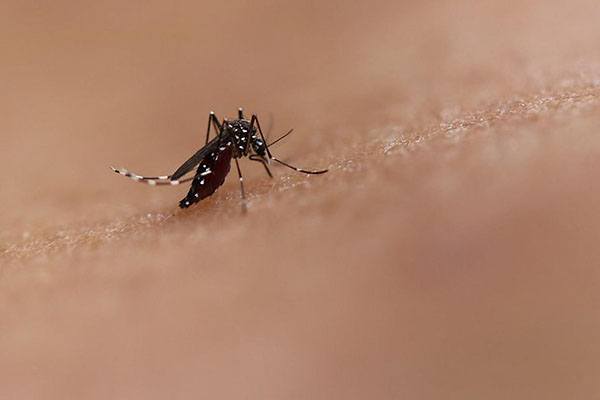Study of mosquito protein could lead to treatments against life-threatening viruses
The mosquito protein AEG12 strongly inhibits the family of viruses that cause yellow fever, dengue, West Nile, and Zika and weakly inhibits coronaviruses, according to scientists at the National Institutes of Health (NIH) and their collaborators. The researchers found that AEG12 works by destabilizing the viral envelope, breaking its protective covering. Although the protein does not affect viruses that do not have an envelope, such as those that cause pink eye and bladder infections, the findings could lead to therapeutics against viruses that affect millions of people around the world. The research was published online in PNAS.
Scientists at the National Institute of Environmental Health Sciences (NIEHS), part of NIH, used X-ray crystallography to solve the structure of AEG12. Senior author Geoffrey Mueller, Ph.D., head of the NIEHS Nuclear Magnetic Resonance Group, said at the molecular level, AEG12 rips out the lipids, or the fat-like portions of the membrane that hold the virus together.
"It is as if AEG12 is hungry for the lipids that are in the virus membrane, so it gets rid of some of the lipids it has and exchanges them for the ones it really prefers," Mueller said. "The protein has high affinity for viral lipids and steals them from the virus."

Bite by an Aedes mosquito. This species can transmit diseases such as chikungunya, dengue, and Zika.
This page was last updated on Friday, January 21, 2022